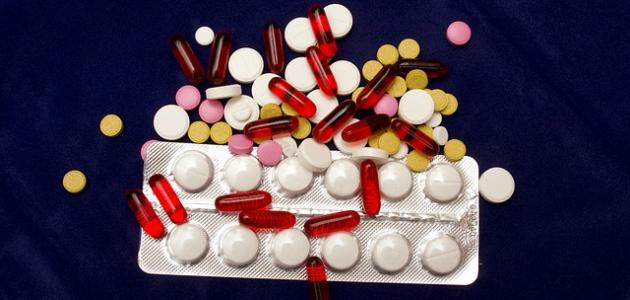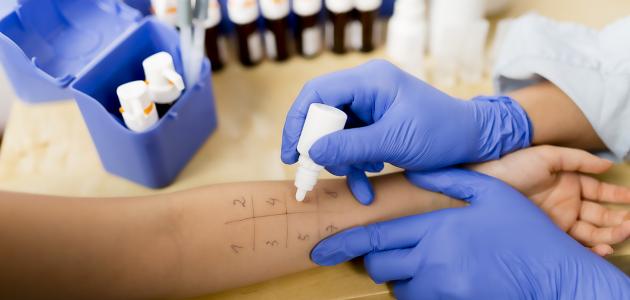Contents
Allergy to medications
Allergy to medications, Drug allergy, drug allergy, or drug allergy are all terms used to express an abnormal immune reaction to a drug, and it is indicated that drug sensitivity differs from side effects that may be Accompanying the use of the drug, and about drug toxicity resulting from the use of an overdose of the drug, and it is also indicated that all types of drugs may stimulate allergies in some, including prescription, over-the-counter drugs, and herbal supplements, but The chance of allergy may be higher after using some specific drugs, and according to the statistics of the World Allergy Organization and the abbreviation WAO published in 2014, drug allergy does not constitute more than 10% of adverse drug reactions , short for ADRs, and it causes between 1-2% of hospitalizations, and affects between 3-5% of patients in different hospitals, but these statistics do not reflect the true percentage of drug allergies among people. From children and adults, as it is difficult to estimate accurately.[1] [2]
Symptoms of drug allergy
Symptoms of an allergy to a drug may not appear when it is used for the first time, but may appear after the second use of it, and it occurs as a result of the immune system producing antibodies that attack the drug as a foreign and intrusive component to the body, and the symptoms usually appear as a result of the production of the immune system Some immune chemical elements to fight the drug elements, and these symptoms may appear within a short or long period after using the drug, and are often limited to simple symptoms such as skin rashes and urticaria , but some people may suffer from more serious symptoms such as serum sickness ; It is one of the types of late symptoms that take a week or more to appear after using the drug. [3] [4]
Common symptoms of drug allergy include the following: [4]
- Itchy skin and itchy eyes.
- Wheeze when you breathe.
- Swollen or puffy lips, tongue and face.
- Allergic shock or anaphylaxis, and among the symptoms that may be accompanied by the following:
- Confusion and disorientation.
- diarrhea.
- Dizziness
- Rapid pulse, i.e. increased heart rate.
- Nausea and vomiting.
- Palpitations; It is the feeling of the heartbeat.
- Urticaria in various areas of the body.
- Dizziness, fainting.
- Abdominal pain and cramping.
- Difficulty breathing accompanied by hoarseness and wheezing.
Causes of drug allergy
Allergies usually result from a series of reactions that start with the immune system. As mentioned previously, the immune systemIt may form a reaction to a drug because it believes that it is a pathogen, and in this case the drug is known as an allergen , and there are several ways for the immune system to interact with the allergen, including the production of antibodies to IgE , an acronym for IgE for the type of allergen drug, so that these bodies are produced and sent to the cells responsible for the production of chemical elements that stimulate the immune reaction and its symptoms, and these symptoms usually appear in the throat, lungs, nose, ears, stomach lining, and skin. Usually within a period ranging from several minutes to several hours of using the drug, and despite the possibility of an allergic reaction and the production of antibodies from the first use of the drug, this process may not take place until after the body is exposed to the specified drug several times repeatedly in some Cases, and one of the ways the body responds to the allergen is that some types of drugs are directly related to a specific type of immune cell, known as T cells, and the immune reaction in this case usually appears from the first use of the drug.[5] [6]
It is noteworthy that allergy to penicillin drugs and other similar antibiotics is considered the most common drug allergy. As for other common types of drugs that may cause drug sensitivity without stimulating the production of immunoglobulin, the following is: [7]
- Sulfa drugs.
- Contrast dye.
- Chemotherapy drugs.
- Anticonvulsants.
- Non- steroidal anti-inflammatory drugs (NSAIDs) such as ibuprofen and aspirin.
Risk factors for drug allergy
There are a number of factors that may increase the risk of developing drug allergies, including the following: [1]
- Previous injury to one other types of allergies such as hay fever or food allergy.
- Excessive or repeated exposure to any type of medicine, or taking an overdose of one of the medicines.
- A personal or family history of an allergy to one of the types of medicines.
- Infection with certain types of infections, such as the Epstein-Barr virus, and human immunodeficiency virus (HIV), which causes AIDS.
Diagnose drug allergy
It is believed that the cases that have been diagnosed with drug allergy are more than the reality, as there are many cases diagnosed with drug allergy without consistent or documented scientific evidence, and this in itself is a problem; It leads to limiting the use of some medicines, resorting to less appropriate medicines, or using more expensive medicines on the affected person. Therefore, it is necessary to accurately diagnose allergies to one of the medicines by a specialist doctor, and to do this, the doctor conducts a clinical examination, and asks about The nature of the symptoms that appear on the affected person and the time of their onset, as well as the improvement or relapse of these symptoms, and the time of starting the use of the drug. The doctor may request a number of diagnostic tests or refer the concerned person to an allergist, [6] and among the diagnostic tests that may be conducted to confirm Suffering from an allergy to a specific drug:
Skin tests
The principle of this test is to use a small amount of the suspected allergic drug by injecting it into the skin, after making a small scratch with a special needle or using a skin patch, and in the event that a small swollen, red, itchy lump appears in the injection area; This may indicate an allergy to the drug in question, but in the absence of any symptoms in the injection area, this does not necessarily mean that the person is not allergic to this drug, although the negative result in many cases denies the existence of the allergy, except That there are some cases in which the result of the skin test appears negative (that is, the person concerned does not show allergy symptoms) and yet the person is allergic to this drug. [8]
Blood tests
The doctor may request a blood test to rule out suffering from other health problems that have caused the symptoms and signs to appear on the person concerned, and it is indicated that there is a type of blood analysis that can detect allergies, but they are of little use Its use is limited to cases of severe allergic reaction after an allergy skin test, due to the lack of sufficient research to confirm the accuracy of these analyzes. [8]
Treating drug allergy
Medication allergy treatment aims to relieve symptoms associated with allergies and prevent severe immune reactions. Treatment options may include the following: [9]
- Antihistamine: to relieve the symptoms of minor allergies such as rashes, hives, and itching.
- Epinephrine: for the treatment of allergic shock.
- Corticosteroids: (Corticosteroids), including those given orally, topically, or intravenously.
- Bronchodilators: to relieve symptoms similar to those of an asthma attack, such as coughing and wheezing, including Albuterol.
- Desensitization: or desensitization resorted to this procedure for the treatment of some drugs allergy , such as a drug penicillin, and where is offered simple doses of medication that causes sensitivity in the beginning , followed by large than doses to raise the body 's ability to carry it , and do not resort to this type of Treatment is usually only in the absence of an alternative drug treatment for the allergen, and only under the supervision of a specialist doctor.
It is noteworthy that the use of traditional and alternative medicine to treat drug allergies should be avoided, and all health care providers must be informed in case of suffering from any type of drug allergy, including allergies that children suffer from. [9]
References
- ^ A b "Drug Allergy" , Www.stclair.org , 15-10-2020, Retrieved 21-10-2002. Edited.
- ↑ "Drug Allergies" , www.worldallergy.org , Retrieved 10-21-2020. Edited.
- ↑ "Drug Allergies" , acaai.org , Retrieved 21-10-2020. Edited.
- ^ A b "Drug Allergies" , Medlineplus.gov , Retrieved 21-10-2020. Edited.
- ↑ "MEDICATIONS AND DRUG ALLERGIC REACTIONS" , www.aaaai.org , Retrieved 10-21-2020. Edited.
- ^ A b "Drug Allergy" , Middlesexhealth.org , Retrieved 21-10-2020. Edited.
- ↑ "Medication Allergies" , my.clevelandclinic.org , Retrieved 10-21-2020. Edited.
- ^ A b "Drug Allergy" , Www.mayoclinic.org , 15-10-2020, Retrieved 21-10-2020. Edited.
- ^ A b "Drug , Allergy" , Www.pennmedicine.org , Retrieved 21-10-2020. Edited.













